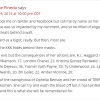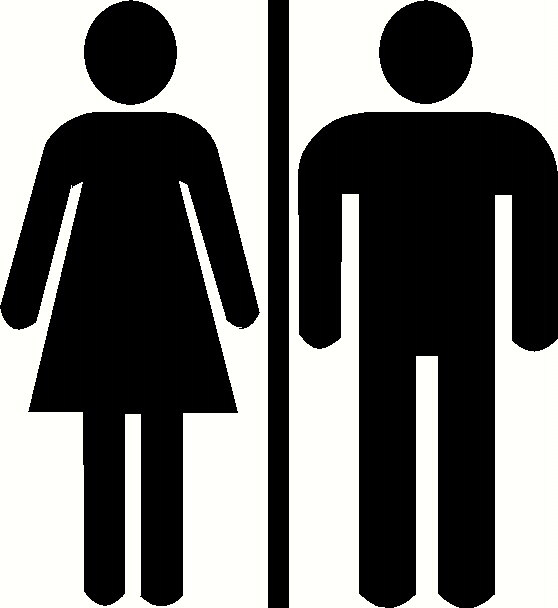Sean Carroll wrote about Ben Barres and Joan Roughgarden on his blog in 2006. (Physicist SC, not biologist SC.)
Barres underwent treatments about ten years ago to go from being female to male, so he has a unique perspective on the different ways that male and female scientists are treated. Not completely unique, of course; the WSJ article also quotes Joan Roughgarden, also at Stanford, who was “Jonathan” up until 1998:
Jonathan Roughgarden’s colleagues and rivals took his intelligence for granted, Joan says. But Joan has had “to establish competence to an extent that men never have to. They’re assumed to be competent until proven otherwise, whereas a woman is assumed to be incompetent until she proves otherwise. I remember going on a drive with a man. He assumed I couldn’t read a map.”
They seem to be implying that women face obstacles in the world of science that men do not. In other news, the Sun rose in the East this morning.
Assumed to be incompetent until she proves otherwise – what an enviable status, eh?
Today’s New York Times has an interview with Barres by Cornelia Dean. They get right down to it:
Q. What’s your response to people who say you rely too much on your own experience and should take scientific hypotheses less personally?
A. They should learn that scientific hypotheses require evidence. The bulk of my commentary discusses the actual peer-reviewed data.
That’s not fair! Barres needs to understand that phrases like “scientific hypotheses require evidence” are only to be used by people who believe that the differences between men and women can be traced to variations in innate qualities. The mountains of data pointing to systematic biases are to be ignored.
So who are these unnamed people who think that Barres “should take scientific hypotheses less personally?” That sounds suspiciously like a straw man — most careful scientists would be reluctant to stoop so directly to an ad hominem attack, rather than dealing with the aforementioned mountains of data. Sadly, it’s a direct quote from our old friend Steven Pinker, himself a master of the straw-man technique.
Professor Pinker, if you are reading this, you are a brilliant thinker and an extraordinary writer and lecturer. The Language Instinct was one of the all-time classic books on science for a wide audience. Please do not work to make your public profile identified primarily with the claim that innate differences in capacity are more important than systematic biases in keeping women out of science. It is not only wrong, but wrong in a particularly damaging way.
Sadly, Pinker didn’t take the advice. He’s still doing that work, alongside Dawkins. (Both are big fans of Christina Hoff Sommers.)
The questions “Why are there fewer women in science?” and “What are the innate differences in mental abilities and inclinations between boys and girls?” are just not the same. They may be related, obviously, but they are just not the same. And while the latter question is subtle and extremely hard to answer at the current state of the art, due to the extraordinary difficulty in separating out what is “innate” from what is influenced by the outside world, the answer to the former question is blindingly obvious to anyone who cares to open their eyes. Do you really need Ben Barres or Joan Roughgarden to tell you that men and women are treated differently as scientists? Read the Xie and Shauman book. Read Meg Urry’s article. Just look at what goes on around you. And don’t take reality so personally.
Ironically, that’s exactly why Michael Shermer’s “it’s more of a guy thing” was so irritating, and why Sean Carroll – who was right next to him on that show – would have answered it much better. Shermer jumped right over the blindingly obvious reason atheist women are less visible, which is that people forget they exist, to go for the stale tiresome and wrong innate differences answer.
Update: via Crooked Timber, some interesting stories at Science + Professor + Woman = Me. For example, a question asked by a professor to a female grad student:
Q. So you’re doing a Ph.D.? Couldn’t you find anyone to marry you?
Of course, they are only anecdotes, so you should feel free to pretend that this stuff almost never happens, if that makes you feel better.
But then the awakening will be so much more rude.



